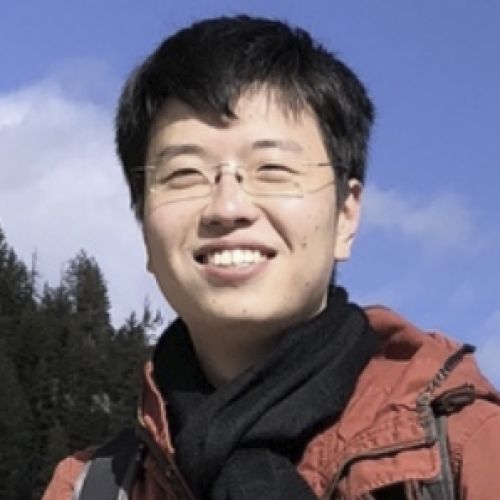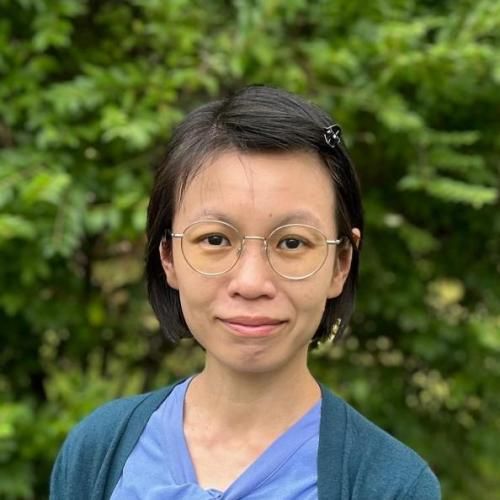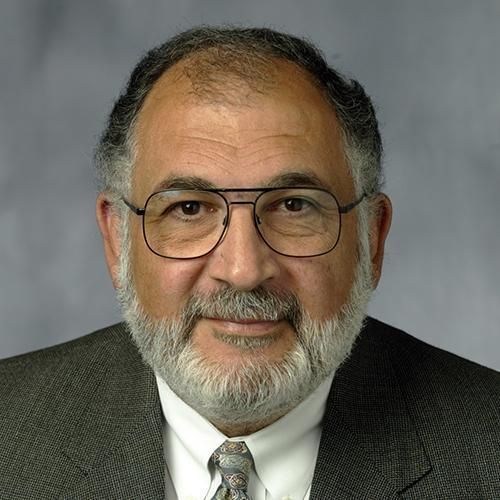
Tyler K Bletsch
tyler.bletsch@duke.eduAssociate Professor of the Practice in the Department of Electrical and Computer Engineering
Research Interests
Software security, robotics, project-oriented education, and datacenter efficiency

Associate Professor of the Practice in the Department of Electrical and Computer Engineering
Software security, robotics, project-oriented education, and datacenter efficiency

High performance scientific computing and simulation, novel computer architectures, cluster computing and parallel processing; ubiquitous computing.

Associate Professor of Electrical and Computer Engineering
Analog, RF, and optoelectronic circuits. Sensor interface circuits. Deployable sensor systems


Michael J. Fitzpatrick Distinguished Professor of Engineering
Quantum error correction, quantum control, quantum computer architecture, ion trap quantum computing, and the spectroscopy of sympathetically cooled molecular ions

Charles S. Sydnor Distinguished Professor of Computer Science

Applied statistics and machine learning

Assistant Professor in the Department of Electrical and Computer Engineering
Wireless networking, next-generation wireless and optical networks, edge cloud and computing, Internet-of-Things (IoT), mobile and embedded systems, platforms and testbeds

John Cocke Distinguished Professor of Electrical and Computer Engineering
Emerging memory and storage technologies Embedded systems, CPS, edge computing, and mobile applications Neuromorphic computing, deep learning and system security Low power circuit and system

Assistant Professor in the Department of Electrical and Computer Engineering

Physics-based machine learning algorithms for big data, including developing remediation strategies for the hearing impaired and sensor-based algorithms for the detection of hazardous buried objects


Associate Chair, William H. Younger Distinguished Professor of Engineering
Theoretical and experimental electromagnetic problems related to geophysical remote sensing and engineered electromagnetic materials.

Identity-inclusive computing, Human-centered design & engineering, justice-centered STEM education

Lord-Chandran Distinguished Professor of Engineering
Microfluidic systems for lab-on-a-chip applications based on electrowetting technology

Associate Dean for Faculty Affairs, Addy Professor of ECE
Nanomaterials in electronic devices, nanofabrication, printed electronics and internet of things (IoT), biosensing

Primarily computational and compressive sensing and measurement in all modalities (with special emphasis in Electromagnetic/Optical from RF to x-ray and all forms of Mass spectrometry),…

Hogg Family Director of Engineering Management & Entrepreneurship, Professor of ECE
Electronic materials and the associated devices/instruments improved by these materials, especially electrode applications in miniature mass spectrometry, energy conversion and storage and liquid waste disinfection…

Cybersecurity and trustworthy AI

Associate Professor of Electrical and Computer Engineering
Architectures, algorithms, and protocols for emerging mobile pervasive systems and the Internet of Things. Our work crosses traditional discipline boundaries and requires thinking across multiple…

ECE Director of Undergraduate Studies, Associate Professor of the Practice
Computational methods for image analysis and information extraction, discrete event simulations, curriculum development and deployment

Director, Innovation in Computing Education, Professor of the Practice in the Department of ECE
Computer architecture, specifically architectural support for security and energy-efficient performance

Associate Dean of Undergraduate Education, Edmund T. Pratt, Jr. School Professor of the Practice of ECE
Engineering education, pedagogy and curriculum development, applications of statistical signal processing

J. A. Jones Distinguished Professor of Electrical and Computer Engineering

Schiciano Family Distinguished Professor of Electrical and Computer Engineering
Quantum Computing with Trapped Ions, Quantum Information Science, Novel Photonic Devices, Application of Quantum Computers

Physics-based and statistical signal processing, sensor array processing, radar and sonar systems, pervasive distributed processing

Integrated circuits, signal processing and data analytics

Chair of Electrical and Computer Engineering, Marie Foote Reel E’46 Distinguished Professor
Neuromorphic computing systems Machine learning acceleration and trustworthy AIEmerging memory technologies, circuit and architecture Low power circuits and systems

Director, First-Year Computing Program, Assistant Professor of the Practice in the Department of ECE

Professor of Electrical and Computer Engineering
Nanophotonics; Photonic Metamaterials; Nonlinear Optics; Fiber Optics; Photonic Crystal Fibers

Quantum information science, quantum simulation, quantum sensing, neutral atom arrays

structural health monitoring; cyber-physical system architectures; infrastructure resilience; multifunctional nanocomposites; non-destructive evaluation; community engagement; academic leadership

Assistant Professor in the Department of Electrical and Computer Engineering
Quantum information and computation theory

Ultrathin gate dielectrics for CMOS ULSI – the technology, physics, modeling, simulation, and characterization of ultrathin-oxide MOSFETs

Professor in the Department of Electrical and Computer Engineering
Quantum nanophotonics, plasmonics, light-matter interactions in artificially structured nanoscale materials, hybrid molecular-scale materials and spin phenomena in the solid state

quantum physics, applications in quantum information science

My research focuses on quantum science experiments with ultracold gases of neutral atoms. My team has pioneered ultracold physics with Main Group III (Group 13)…

Assistant Professor of Electrical and Computer Engineering
Quantum computing and simulation with trapped ions, integrated photonics for scalable trapped ion systems, and electric-field noise from surfaces

Randolph K. Repass and Sally-Christine Rodgers University Distinguished Professor of Conservation Technology in Environment and Engineering
Marine mammal behavioral and acoustic ecologyOcean noiseOffshore renewable energy

Theoretical, computational, and experimental investigation of electromagnetic metamaterials and metasurfaces, with a focus on artificial intelligence, deep / machine learning, with application to spectroscopy, computational…